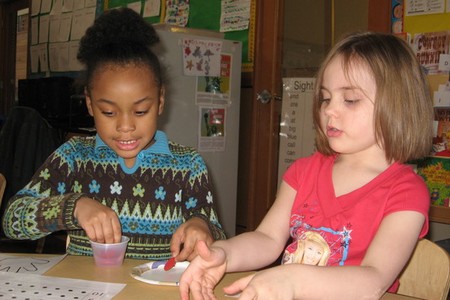Gratitude
‘It’s not fair,’ Dad unloads to me. ‘I took him to the zoo, we had a fantastic day of father, son togetherness then, on leaving, he saw a Mr. Whippy van, created a scene and grizzled all the way home. I bust myself for him – so where’s the gratitude?’
I have news for you. Don’t expect gratitude in this world. Your reward will come in the hereafter! You are in this parenting because you love them, not for thanks and reward.
Many children are full of thanks and appreciation, but for others it’s all take and no give. If it makes you feel better, deliver them a lecture about the injustice of it all, but it won’t change anything. Enjoy it when you receive it, even if it’s a once-a-year event.

Grazing
There are some children who nibble all day like sheep. Grazing is not unhealthy as long as the pasture is of reasonable quality.
For some, grazing is their favorite way to feed. Others graze out of restless boredom. In school holidays these are the children who pace around, opening and closing doors until the fridge is unable to keep food cool.
The solution to boredom is to steer children towards more structured activity. When scavengers are on the prowl lock away the goodies and avoid buying treat snacks.
Bored or not, grazers need easy access to healthy affordable snacks. A chilled jug of tap water, unflavored milk, bread, fruit and plain biscuits are a start.
Hair and eyebrow plucking
I don’t know what pleasure children get from pulling out and nibbling their hair, but it’s probably similar to the pleasure they get out of nail biting and finger picking. I have seen school-age children with no eyebrows or eyelashes and others with thin hair or even a patch of baldness.
If there is some obvious cause of tension this must be addressed, otherwise adopt the gentle redirection, minimum-fuss approach. Children usually pull and chew when they are bored, falling asleep or watching television. At these times consider getting something more appropriate to twiddle, like a worry ball. Give a gentle nudge but don’t ridicule them as this increases the tension and they will become an underground plucker.
Have fancy hairstyles and focus on attractive eyebrows and lashes. Be quick to notice any improvement or any area of regeneration.
Occasionally a patch of hair drops out for no good reason (alopecia areata). This may be associated with stress but more often it just falls out for no good reason. Time will tidy up the alopecia, but you may want to pay a visit to the paediatrician or skin specialist for reassurance.
Interrupting
Children who are impulsive or forgetful may interrupt. The impulsive have no patience and can’t wait. The forgetful will lose their words if they don’t get them out immediately. We want to keep the lines of communication open and also encourage them to wait.
- Give a gentle reminder: ‘Your turn in a minute, John.’
- Keep repeating the rules of conversation, without becoming a nag. Allow the forgetful child to interrupt with a cue word that you pick up later. As you are talking they say ‘New teacher’, and when appropriate you ask, ‘What’s this about a new teacher?’
- Teach through role-play how to interpret body language. Show when you are receptive and when your eyes are telling them to back off.